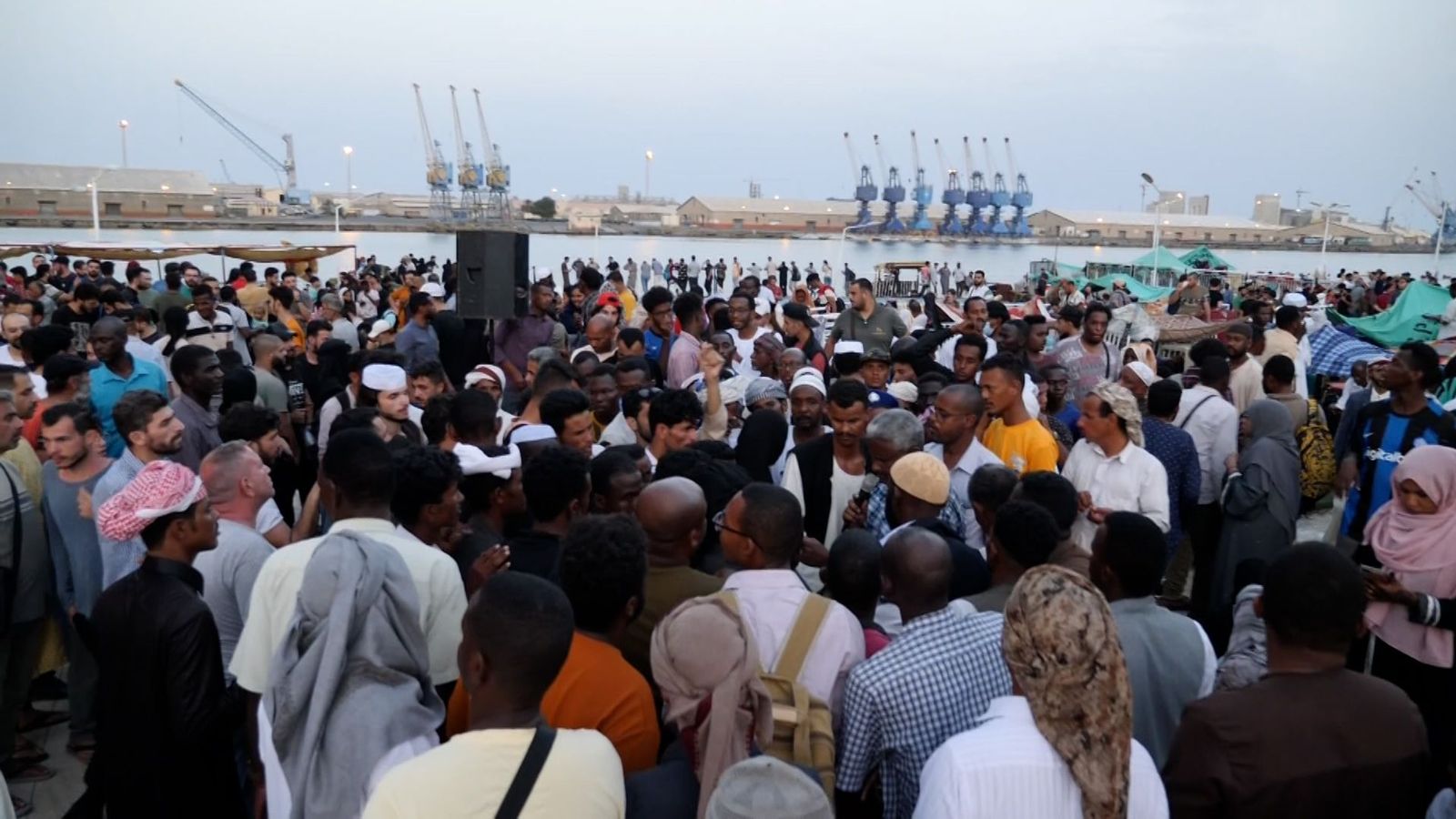‘Death will come to you anywhere’ – mayhem at Port Sudan as some return home and others flee civil war

Mayhem is unfolding on the docks of Port Sudan.
Hundreds are gathered from countries all over the world – fresh from the hell of Khartoum’s violence.
They are gathered in front of Port Sudan’s Maritime Social Club. It’s now an announcement and registration centre for evacuation ships.
Every so often a name and passport number are loudly called and the hopes of hundreds are raised for a fleeting moment and – for all but one – abruptly dashed.
The Sudanese faces in the crowd are few compared to the masses of Yemenis and Syrians registering to board an incoming Saudi Arabian military evacuation vessel.
They fled their own war to seek refuge in Sudan and feel as though it followed them here.
“We are suffering,” says Raiida. “We didn’t even see war like this in Syria.”
Raiida was in Sudan visiting her brother for a week and became trapped by the conflict.
The war has collapsed Sudan’s capital Khartoum and killed hundreds of people and injured thousands.
Advertisement
Read more:
Sudan: British nationals have 24 hours to catch an evacuation flight, says deputy PM
Sudan ceasefire extended as remaining Britons told to head to airfield ‘quickly’
“Life there can not be endured. Basic means are not available – no pharmacies, no hospitals. Food and water are completely depleted and houses near us were demolished,” says Mutaz Abbas, a Khartoum native who left his hometown behind.
The sheer scale of people displaced is yet to be fully comprehended.
Please use Chrome browser for a more accessible video player
3:35
Sudan: ‘It’s sheer chaos’
As we discuss the details of destruction, an older lady pleas with us: “Don’t talk about the conflict. Talk about asylum! We need asylum.”
Hours earlier in the stifling heat of the seaside afternoon, a ferry pulls into Othman Digna Port in Suakin city.
The passengers have made a ten-hour journey from Saudi Arabia to Sudan. It is the first transport route to open out of the country and reserved for those who cannot afford to wait until airports reopen.
Many of them are pilgrims returning from Makkah and say they were offered temporary amnesty but instead rushed to return home.
“Death will come to you anywhere,” says Ibrahim Eltayeb as the ferry cuts through the deep waters of the Red Sea towards Sudan.
“It is important to be with our families.”